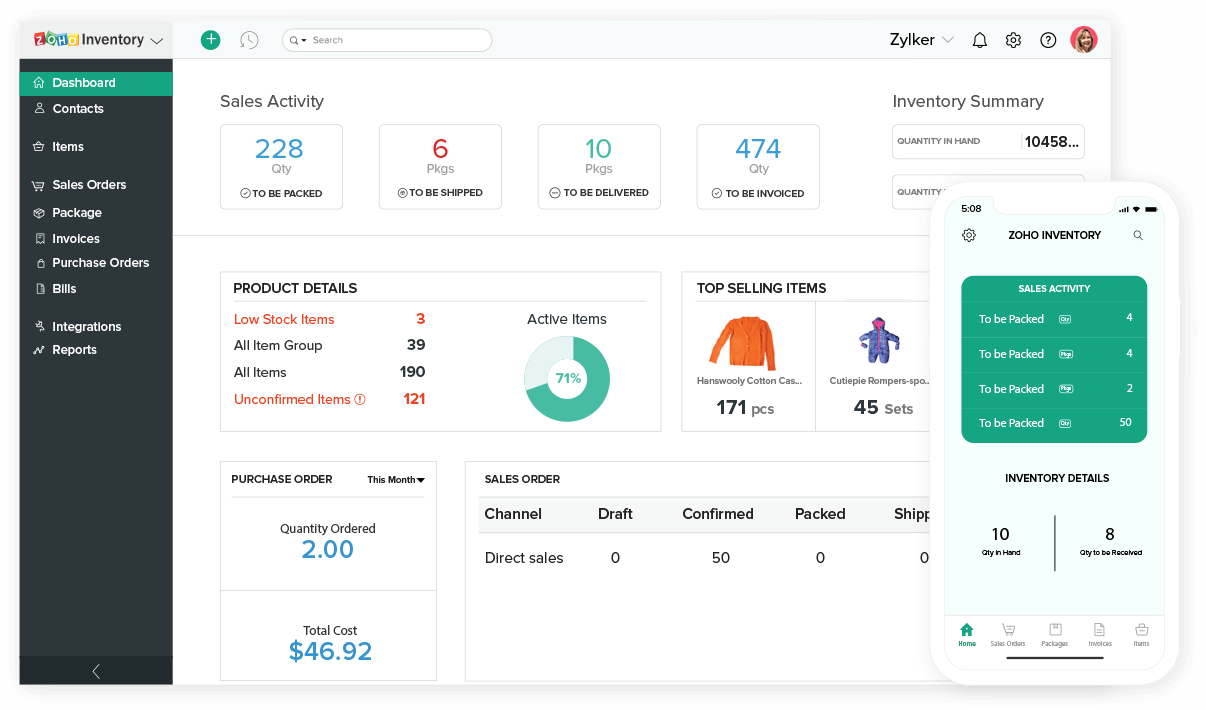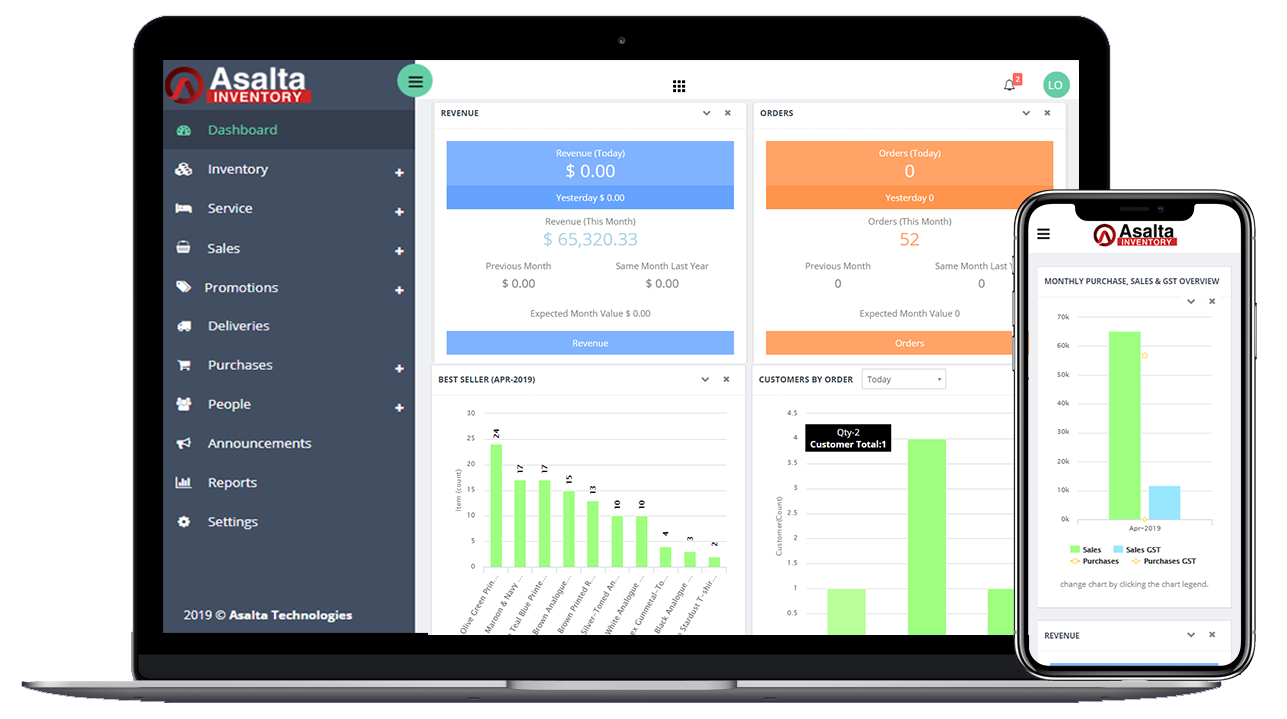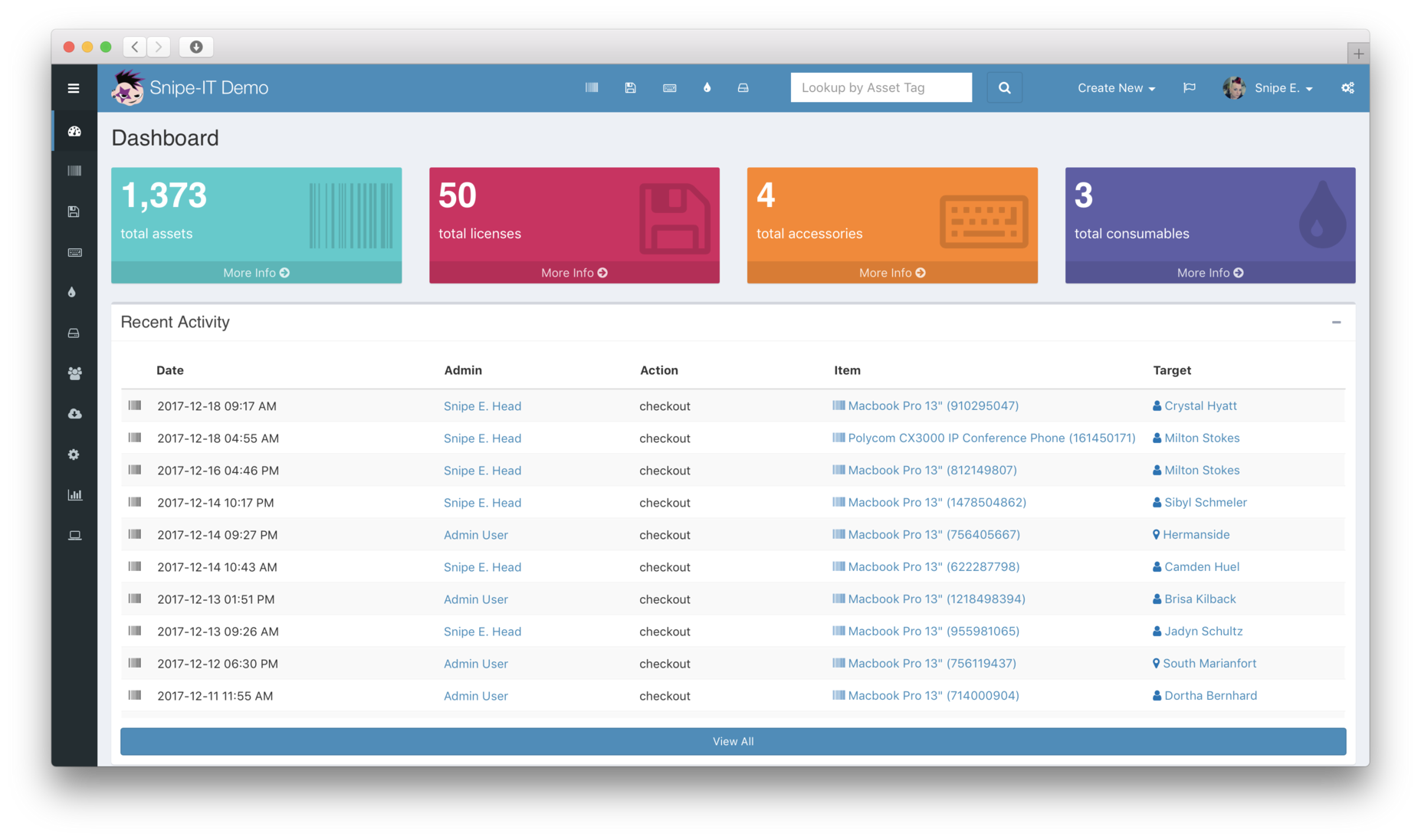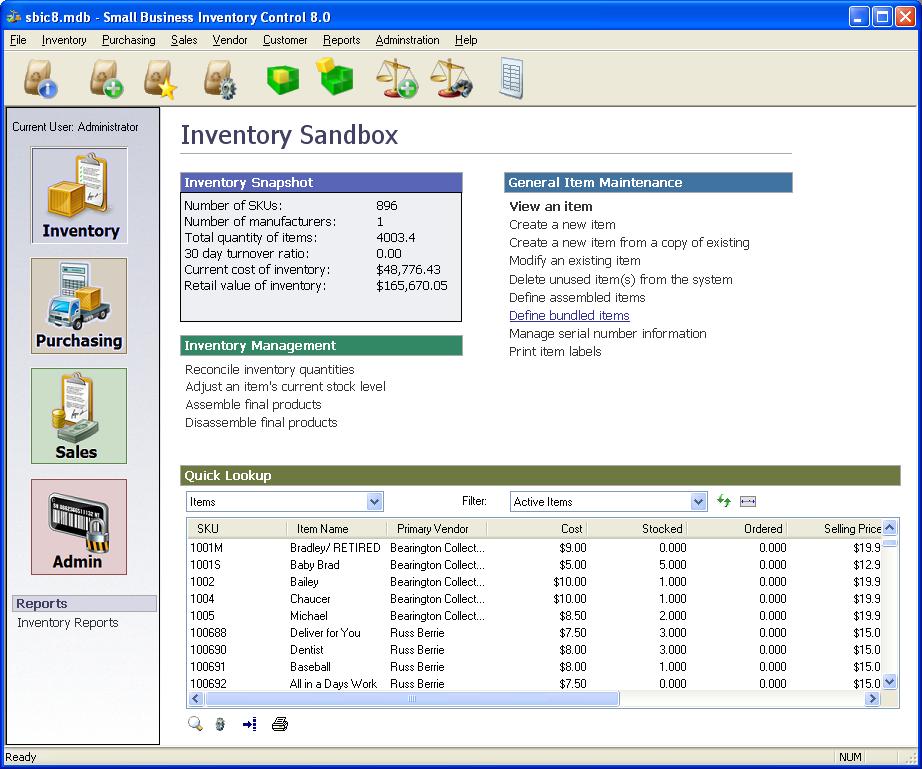Software for inventory control for small businesses plays a pivotal role in streamlining operations, optimizing inventory management, and driving profitability. With the increasing complexity of supply chains and customer demands, small businesses require robust inventory control solutions to navigate these challenges effectively.
This comprehensive guide delves into the essential features, types, and benefits of inventory control software, providing valuable insights for small businesses seeking to enhance their inventory management practices.
Introduction

Inventory control is the process of managing the inventory of a business, which refers to the goods and materials that a business holds for the purpose of sale, production, or use. Effective inventory control is crucial for small businesses as it helps them maintain optimal stock levels, reduce costs, and improve customer satisfaction.
Small businesses often face unique challenges in inventory management, such as limited resources, space constraints, and fluctuating demand. These challenges can make it difficult for small businesses to maintain accurate inventory records, avoid stockouts, and minimize waste.
Benefits of Inventory Control
- Reduced costs:Effective inventory control can help small businesses reduce costs by minimizing waste, preventing overstocking, and optimizing purchasing.
- Improved customer satisfaction:By maintaining optimal stock levels, small businesses can avoid stockouts and meet customer demand, leading to improved customer satisfaction.
- Increased efficiency:Efficient inventory control systems can streamline inventory management processes, saving time and resources for small businesses.
- Better decision-making:Accurate inventory data can help small businesses make informed decisions about purchasing, production, and marketing.
Challenges of Inventory Management for Small Businesses
- Limited resources:Small businesses often have limited financial and human resources, which can make it challenging to implement and maintain effective inventory control systems.
- Space constraints:Small businesses may have limited storage space, which can make it difficult to store and manage inventory efficiently.
- Fluctuating demand:Small businesses often face fluctuating demand, which can make it difficult to predict inventory needs and maintain optimal stock levels.
Features of Inventory Control Software for Small Businesses
Inventory control software streamlines and automates inventory management tasks, offering numerous benefits to small businesses. Here’s a comprehensive list of essential features to look for:
Real-time Inventory Tracking
Real-time inventory tracking provides accurate and up-to-date information on stock levels. This allows businesses to:
- Avoid overstocking or stockouts
- Prevent losses due to spoilage or obsolescence
- Optimize inventory levels to meet demand
Purchase Order Management
Purchase order management automates the process of creating, sending, and tracking purchase orders. This helps businesses:
- Streamline procurement
- Ensure timely delivery of goods
- Negotiate better prices with suppliers
Barcode Scanning
Barcode scanning simplifies inventory tracking by allowing businesses to scan barcodes on products for quick and accurate data entry. This:
- Reduces errors
- Speeds up inventory counts
- Automates stock adjustments
Inventory Forecasting
Inventory forecasting helps businesses predict future demand based on historical data. This enables them to:
- Plan for future inventory needs
- Avoid overstocking or stockouts
- Optimize cash flow
Reporting and Analytics
Robust reporting and analytics provide valuable insights into inventory performance. Businesses can use this information to:
- Identify trends and patterns
- Make data-driven decisions
- Improve inventory management practices
Mobile Access
Mobile access allows businesses to manage inventory on the go. This is especially useful for:
- Warehouse staff
- Field sales representatives
- Business owners who need remote access
Integration with Other Systems
Integration with other systems, such as accounting or e-commerce platforms, streamlines data flow and eliminates manual data entry. This:
- Reduces errors
- Saves time
- Improves overall efficiency
User-friendly Interface
A user-friendly interface makes inventory control software accessible to users of all skill levels. This ensures:
- Easy adoption and implementation
- Reduced training costs
- Increased productivity
Cloud-based Access
Cloud-based inventory control software provides remote access and real-time data updates. This allows businesses to:
- Access inventory data from anywhere
- Collaborate with team members in real time
- Eliminate the need for on-premises servers
Scalability
Scalable inventory control software can adapt to the changing needs of a business. This ensures:
- Flexibility to accommodate growth
- No need to replace software as the business expands
- Cost-effective solution for long-term use
Types of Inventory Control Software
Inventory control software is a valuable tool for small businesses, as it can help them track their inventory levels, manage their orders, and avoid stockouts. There are many different types of inventory control software available, each with its own advantages and disadvantages.
The most common type of inventory control software is a perpetual inventory system. This type of system tracks inventory levels in real-time, so businesses can always see how much stock they have on hand. Perpetual inventory systems are typically more expensive than other types of inventory control software, but they can also be more accurate.
Another type of inventory control software is a periodic inventory system. This type of system tracks inventory levels at regular intervals, such as weekly or monthly. Periodic inventory systems are less expensive than perpetual inventory systems, but they can also be less accurate.
In addition to perpetual and periodic inventory systems, there are also a number of other types of inventory control software available, such as:
- Cloud-based inventory control software:This type of software is hosted in the cloud, so businesses can access it from anywhere with an internet connection. Cloud-based inventory control software is typically more expensive than on-premises inventory control software, but it can also be more flexible and scalable.
- On-premises inventory control software:This type of software is installed on a business’s own servers. On-premises inventory control software is typically less expensive than cloud-based inventory control software, but it can also be less flexible and scalable.
- Open-source inventory control software:This type of software is free to use and modify. Open-source inventory control software can be a good option for businesses with limited budgets, but it can also be more difficult to implement and maintain.
- Commercial inventory control software:This type of software is developed and sold by a commercial software vendor. Commercial inventory control software is typically more expensive than open-source inventory control software, but it can also be more feature-rich and easier to implement and maintain.
The best type of inventory control software for a small business will depend on its specific needs and budget. Businesses should carefully consider the features and benefits of each type of software before making a decision.
Benefits of Using Inventory Control Software
Inventory control software can significantly benefit small businesses by streamlining operations, improving accuracy, and boosting profitability. Here are some of the key advantages:
Improved Efficiency
Automated inventory tracking eliminates manual processes, saving time and reducing errors. Businesses can track inventory levels in real-time, ensuring they have the right amount of stock on hand to meet customer demand. This reduces the risk of overstocking or stockouts, both of which can lead to lost sales and wasted resources.
Enhanced Accuracy
Inventory control software provides a centralized platform for managing inventory data, reducing the likelihood of errors that can occur with manual tracking. Automated processes and real-time updates ensure that inventory levels are accurate and up-to-date, enabling businesses to make informed decisions about purchasing and stocking.
Increased Profitability
By optimizing inventory levels and reducing errors, inventory control software can help businesses improve their bottom line. Accurate inventory data allows businesses to avoid overstocking, which ties up cash and leads to losses due to spoilage or obsolescence. Additionally, by reducing stockouts, businesses can ensure they have the products customers want when they need them, leading to increased sales and improved customer satisfaction.
Factors to Consider When Choosing Inventory Control Software

Choosing the right inventory control software for your small business is crucial for efficient inventory management. Here’s a checklist of factors to consider:
Cost
Consider the upfront cost of the software, as well as any ongoing fees or subscription costs. Determine if the software fits within your budget and provides a good return on investment.
Scalability
As your business grows, your inventory management needs will evolve. Choose software that can scale with your business, allowing you to manage larger inventory levels and more complex operations.
Ease of Use
The software should be user-friendly and intuitive, allowing your staff to learn and use it quickly. A poorly designed interface or complex functionality can lead to errors and inefficiencies.
Customer Support
Technical issues and questions are inevitable. Ensure the software provider offers reliable customer support to assist you with any issues or queries you may encounter.
Best Practices for Implementing Inventory Control Software: Software For Inventory Control For Small Business

Implementing inventory control software can streamline inventory management and improve efficiency. Here are some best practices to ensure a successful implementation:
Data Accuracy, Software for inventory control for small business
- Establish clear guidelines for data entry to minimize errors.
- Regularly review and update inventory data to maintain accuracy.
- Implement automated data validation tools to detect and correct inconsistencies.
Inventory Optimization
- Use inventory control software to track stock levels and identify slow-moving items.
- Set up reorder points to ensure adequate stock levels without overstocking.
- Optimize inventory levels based on demand forecasting and sales patterns.
Reporting
- Generate regular inventory reports to monitor stock levels, track inventory turnover, and identify trends.
- Use reports to make informed decisions about inventory management and optimize stock levels.
- Share inventory reports with relevant stakeholders to improve communication and collaboration.
Examples of Inventory Control Software for Small Businesses

Choosing the right inventory control software can help small businesses streamline their operations, reduce costs, and improve customer satisfaction. Here’s a table listing some popular inventory control software solutions for small businesses, along with their key features, pricing, and user reviews:
The table below provides a comparison of some popular inventory control software solutions for small businesses, including their key features, pricing, and user reviews:
| Software | Key Features | Pricing | User Reviews |
|---|---|---|---|
| QuickBooks Online |
|
|
|
| Shopify |
|
|
|
| Zoho Inventory |
|
|
|
| TradeGecko |
|
|
|
| Fishbowl |
|
|
|
Wrap-Up

By leveraging inventory control software, small businesses can gain a competitive edge by optimizing stock levels, reducing waste, and improving customer satisfaction. These solutions empower businesses to make informed decisions, streamline operations, and unlock new opportunities for growth.
FAQ Insights
What are the key features of inventory control software?
Essential features include real-time inventory tracking, purchase order management, barcode scanning, reporting and analytics, and integration with accounting systems.
How can inventory control software benefit small businesses?
Benefits include improved inventory accuracy, reduced stockouts, optimized ordering, increased sales, and enhanced customer satisfaction.
What factors should be considered when choosing inventory control software?
Consider factors such as the size of your business, industry-specific needs, scalability, ease of use, and customer support.